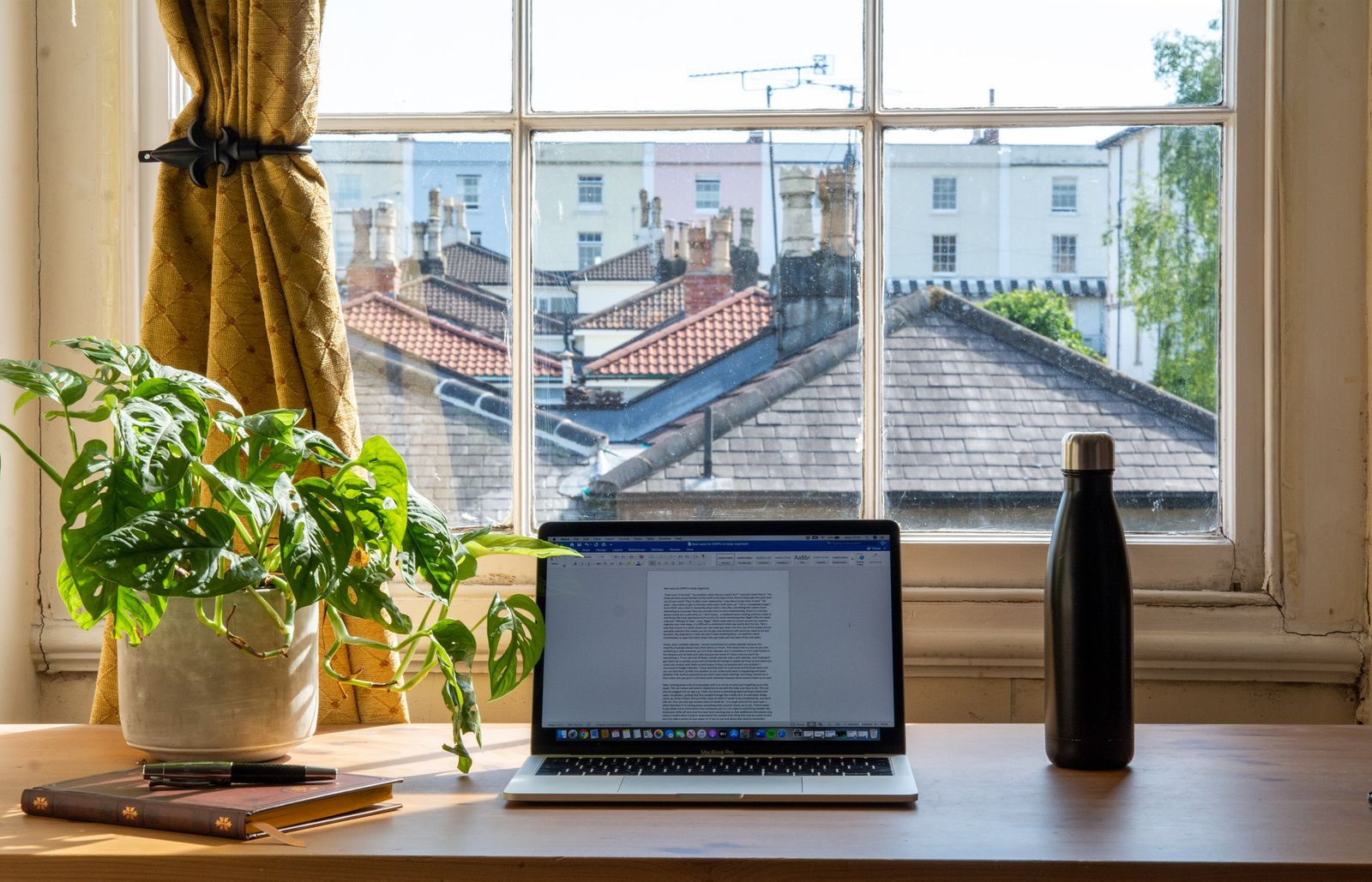- Experts say natural lighting is essential for a productive and healthy home office
- New insight reveals where in your house you should set up your home office according to your work style and profession
Following the COVID-19 crisis, home working has become the norm, but setting up an ideal working environment can be tricky. New insight reveals why proximity to windows and natural light should be top of your requirement list.
After a recent YouGov poll revealed 57% of Brits who never worked at home prior to COVID-19 want to stay working from home in the future, it’s important that home workspaces are set up to create a positive and productive environment.
Experts from Specialist Glass Products delved into the impact natural lighting can have on your home office and recommend that homeworkers across the UK choose their workspace location in their homes based on whether the room is north, south, east or west facing:
South-facing rooms - Ideal for winter home working and frequent video calls
As the sun rises in the east and sets in the west, the south side of any home will see the most hours of sunlight during the day. If you want as much natural light as possible in your home office, then a south-facing aspect should be a big consideration when choosing where to set up your desk.
South-facing rooms will provide warm light all day which will help to create a relaxed working environment. Alongside home offices, south-facing rooms are recommended for kitchens, main living areas and other rooms you spend a lot of time in. They also allow the most winter sunlight, so ideal for lockdown 2.0 home working.
If you're doing long hours or on regular video calls, a south-facing location is recommended. And if you have been told you will be working from home for the foreseeable future, a south-facing room could present the most longevity in terms of regular natural light during the day.
Suited to the following professions: PR, Marketing, HR, Online Teacher etc.
North-facing rooms - Perfect for visual and creative jobs
North-facing views provide lighting that is consistent throughout the day. Natural light from northern exposure is not too harsh and not too dull, perhaps making it the ideal for a home office.
Although north-facing rooms can sometimes be fairly shady, temperatures will be more consistent meaning workers don’t need to mess with the heating throughout the day. A north-facing home office could provide more comfortable working conditions if you are sensitive to temperature and are often engaging in heating or air-con battles in the office.
Artists are known to choose north-facing studios because the light gives truer colour rendition whilst they work. So those working in creative roles with multiple screens could be better suited to a north-facing workspace.
Suited to the following professions: Artist, IT, Graphic Designer, Illustrator etc.
East facing rooms - Suited to early risers and part-time workers
Eastern facing rooms bring more light in the morning, ideal for early risers. Lighting in east-facing home offices’ will be bright first thing in the morning followed by long shadows and little to no sun later in the day. To counteract the lack of direct sunlight in the afternoons, workers could use artificial lighting to control glare and maximise the available natural light.
If your working hours mean you start earlier or you work part-time in the mornings, an eastern facing home office is ideal for you. Allowing enough natural light first thing to awaken the senses, creating a productive and positive workspace.
Suited to the following professions: Journalist, Social Media Manager, Architect, Doctor and jobs which involve dealing with international markets
West facing rooms - Ideal for jobs with limited screen time
Rooms facing west bring more light during the afternoon. This sunlight comes with the hottest part of the day and can often cause glare.
In the late afternoon, west-facing working spaces will get long shadows and softer natural light. Because the sun is so low in the sky, west-facing windows often get direct sunlight blazing through them. This makes them a bad choice for TV rooms since strong light makes screens harder to see, so this should be taken into consideration if your job involves a lot of screentime.
Suited to the following professions: Call Handler, Personal Assistant, Seamstress, Beautician etc.
Andrew Taylor, joint managing director at Specialist Glass Products said: “Lighting should play a big part in choosing where to set up your home workspace as too little, too harsh or too bright natural light can be detrimental to home workers. Paying attention to which room of your home you set up your desk could be the difference between a happy and productive work environment and unsettling or distracting surroundings.
“Warm light, from firelight or shaded lamps, is often used to help promote relaxation. Whereas, cold light, such as natural daylight, can improve productivity and alertness. This means that being in close proximity to natural light and windows is ideal for a home office.
“We recommend Brits who are now working from home again, take the time to reflect on their current home office set up and whether this is best suited to their working day as well as their profession.”
To find out more and plan your home office location, please visit: https://www.specialistglass.co.uk/how-to-set-up-the-perfect-home-office/






